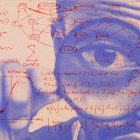 RATIONALISM
RATIONALISM
 INTRODUCTORY LOGIC TEXTS
INTRODUCTORY LOGIC TEXTS
INTRODUCTORY LOGIC TEXTS
 PHILOSOPHY OF MATHEMATICS
PHILOSOPHY OF MATHEMATICS
PHILOSOPHY OF MATHEMATICS
 THE EARLY MODERN PERIOD
THE EARLY MODERN PERIOD
THE EARLY MODERN PERIOD
 WHAT IS THE “SUBJECT MATTER” OF PHILOSOPHY
WHAT IS THE “SUBJECT MATTER” OF PHILOSOPHY
WHAT IS THE “SUBJECT MATTER” OF PHILOSOPHY
 SKEPTICISM (PYRRHONISM)
SKEPTICISM (PYRRHONISM)
SKEPTICISM (PYRRHONISM)
 NATURAL PHILOSOPHY
NATURAL PHILOSOPHY
NATURAL PHILOSOPHY
 WHAT IS GOOD PHILOSOPHICAL WRITING?
WHAT IS GOOD PHILOSOPHICAL WRITING?
WHAT IS GOOD PHILOSOPHICAL WRITING?
 THE PHILOSOPHICAL WRITING PROCESS
THE PHILOSOPHICAL WRITING PROCESS
THE PHILOSOPHICAL WRITING PROCESS
 AESTHETICS
AESTHETICS
AESTHETICS
 THE POSITION PAPER
THE POSITION PAPER
THE POSITION PAPER
 NON-WESTERN PHILOSOPHICAL TRADITIONS
NON-WESTERN PHILOSOPHICAL TRADITIONS
NON-WESTERN PHILOSOPHICAL TRADITIONS
 PROPOSITIONAL CALCULUS (PROPOSITIONAL LOGIC)
PROPOSITIONAL CALCULUS (PROPOSITIONAL LOGIC)
PROPOSITIONAL CALCULUS (PROPOSITIONAL LOGIC)
 LOGICAL POSITIVISM
LOGICAL POSITIVISM
LOGICAL POSITIVISM
 MEDIEVAL PHILOSOPHY
MEDIEVAL PHILOSOPHY
MEDIEVAL PHILOSOPHY
Logic
Books
-
Mao Zedong: The Complete Works Volume 1
$19.99 -
A Philosophical Inquiry Into the Origin of our Ideas of the Sublime and Beautiful
$31.15 -
Critique of Pure Reason
$18.00 -
Thus Spoke Zarathustra
$14.99 -
Change Your Thoughts, Change Your Life
$25.70 -
I Only Wanted to Live
$15.99 -
Essays
$15.00 -
Walden and Civil Disobedience: The 1854 Classic Edition
$8.99 -
El Bhagavad-gita Original: El Canto del Señor (Spanish Edition)
$12.90 -
The Origin of Opportunity: Reality’s Dirty Secret… Unleash the Power of Nothing Be Free of Financial and Mental Restraints
$19.95 -
Capitalist Realism: Is There No Alternative?
$14.95 -
I And Thou
$13.48 -
Classical Islamic Philosophy
$46.95 -
Pablo Escobar: Beyond Narcos (War on Drugs)
$11.19 -
THE POWER OF WISDOM: Rewire Your Mind, Boost Happiness, Master Your Behaviour & Live a Transformed Life (Power Series)
$19.99 -
The Satanic Rituals
$16.43
The Atomos Blog
Philosophy of Law: An Introduction
Philosophy of Law: An Introduction
Philosophy of Science: An Introduction
Aesthetics: An Introduction
Epistemology: An Introduction
Ethics: An Introduction
Logic: An Introduction
Metaphysics: An Introduction
Philosophy of History: An Introduction
Philosophy of Language: An Introduction
Philosophy of Mind: An Introduction
Philosophy of Technology: An Introduction
Political and Social Philosophy: An Introduction
Environmental Philosophy: An Introduction
Existentialism and Phenomenology: An Introduction
Feminist Philosophy: An Introduction
Philosophy of Mind: An Introduction
Terms & Concepts

Naturalism


































































